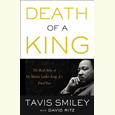The Glorious Pastime: Chanelle Benz
Memphis writer Chanelle Benz shares her current reading list and the story that haunts her
This Q&A with novelist Chanelle Benz launches a new occasional feature at Chapter 16, focused on the reading lives of prominent Tennesseans. We’re calling it “The Glorious Pastime” in a nod to the well-known words of Nobel laureate Wisława Szymborska, who wrote, “I’m old-fashioned and think that reading books is the most glorious pastime that humankind has yet devised.”

Chanelle Benz, who teaches at Rhodes College, published her first short story collection, The Man Who Shot Out My Eye Is Dead, in 2017. The book was named one of Electric Literature’s 15 Best Short Story Collections that year, and the Chicago Review of Books wrote, “Benz pulls the rug out from under you in almost every story, both in expectation bending and in her gut-wrenching narrations.”
The Gone Dead, Benz’s 2019 debut novel, explores a family mystery in the Mississippi Delta. The Washington Post praised it as “a startling work that will set your skin tingling and interrupt your sleep.” Entertainment Weekly said Benz “captures human interaction with the polish of a seasoned dramatist, armed with a bevy of tools — a feel for smooth dialogue; a rich sense of place; a knowledge of history and its impact on individuals, families, and communities — that charge her words with authenticity.”
Chanelle Benz answered questions from Chapter 16 via email.
Chapter 16: What book are you currently reading and what led you to choose it?
Chanelle Benz: I’m reading Miriam Toews’ A Complicated Kindness and Molly Caldwell Crosby’s The American Plague. I loved Toews’ book Women Talking and wanted to read more of her work. I also wanted something that I could sink into and tear through. A Complicated Kindness is the story of a darkly wry teenager navigating the strangeness of growing up in a Mennonite town. The American Plague is about the yellow fever epidemic in Memphis. Oddly, I started researching that epidemic just before Covid-19 hit.
Chapter 16: Is there a book you want to read that you never seem to get around to?
Benz: I want to read Eric Foner’s Reconstruction: America’s Unfinished Revolution, 1863-1877, but it’s a mammoth book and I need the time and (mental) space to give it. (Impossible with no childcare!) I was taught so little about that period in our history that almost everything I learn about it feels like a revelation. Even what I’ve learned lately about Memphis history directly following the Civil War has been eye opening.
Chapter 16: Is there a scene or a passage from a book — fiction or nonfiction — that haunts you?
There’s a scene in the story “Midnight Zone” from Lauren Groff’s Florida, where a mother who is stranded with her young boys in an old hunting camp has a concussion and is trying not to fall asleep. She’s staring at her boys while night falls and there’s a surreal scene where she feels like she leaves her body and moves around the forest. The strangeness of her urges and fears is so human, but what takes over is more than just human. I think a lot about how the passage was constructed and the eerie thrill it gave me when I first read it.
Chapter 16: What’s the next book on your “to read” list?
Benz: I have a few: Felon by Reginald Dwayne Betts, The Memory Police by Yoko Ogawa, and Wayward Lives, Beautiful Experiments by Saidiya Hartman.

Maria Browning is a fifth-generation Tennessean who grew up in Erin and Nashville. Her work has appeared in Guernica, The Los Angeles Review of Books, and The New York Times. She’s the editor of Chapter 16.



